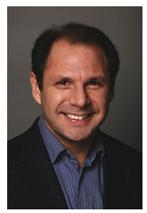Andrew Furco
University of Minnesota
Associate Vice President for Public Engagement
Associate Professor, Educational Policy and Administration
Biography:
Andrew Furco is Associate Vice President for Public Engagement for the University of Minnesota, where he oversees the advancement and institutionalization of various forms of public engagement across the five campuses of the University. In addition to this role, he is an Associate Professor in the College of Education and Human Development at the Twin Cities campus, and is Director of the International Center for Research on Community Engagement, which investigates the impacts, implementation, and institutionalization of public engagement initiatives in primary, secondary, and higher education in the U.S. and abroad. His publications include the books Service-Learning: The Essence of the Pedagogy and Service-Learning Through A Multidisciplinary Lens (with S. Billig) as well as more than two dozen journal articles and book chapters, some of which have been translated into several languages including German, Spanish, and Catalan. He is the recipient of the 2003 International Award for Outstanding Contributions to Service-Learning Research and recipient of the National Society for Experiential Education’s 2006 Researcher of the Year Award. He is a member of the National Review Board for the Scholarship of Education and the Civic Engagement Network for Research One Universities. Prior to arriving to the University of Minnesota in January 2008, he worked for 13 years at the University of California, Berkeley, where he served as a faculty member in the Graduate School of Education and as the founding director of the International Center for Research on Civic Engagement and Service-Learning (established 1994).
Years of Relevant Experience: 14
Expertise: Institutionalization of service-learning; effects of public engagement activities on participating students, faculty, and institutions; assessment and program evaluation; community engagement in primary, secondary, and tertiary education
Relevant Publications:
(2009). Securing administrator support for service-learning institutionalization. (with Barbara Holland). In Strait, J., Lima, M., and Neal, M. (Eds.). The future of service-learning: New solutions for sustaining and improving practice. Stylus Publishing.
(2009). Issues in benchmarking and assessing institutional engagement. (with William Miller). In Sandmann, L. R., Thornton, C. H., & Jaeger, A. J. (Eds.). Institutionalizing community engagement in higher education: The first wave of Carnegie classified institutions. New Directions for Higher Education. San Francisco: Jossey-Bass/Wiley Publishing.
(2008). Charity and social change: The impact of individual preferences on service-learning (with Barbara Moely and Julia Reed). Michigan Journal of Community Service-Learning, 15(1), 37-48.
(2008). Heart, Head, Hands: A Study of Character Asset Development in Elementary Schools. (with Lisa Burton and Kate Kent). Washington, DC: U.S. Department of Education, 28 pages.
(2007). Advancing youth academic success, school engagement, and international leadership through service-learning. Growing to Greatness. St. Paul, MN: National Youth Leadership Council, 4-13.
(2006). Is service-learning really better than community service? In Sliwka, A, Diedrich, M, and Hofer, M. (Eds.). Citizenship Education. Berlin: Waxmann, 155-181.
(2004). Institutionalizing Service-Learning in Higher Education: Issues and Strategies for Chief Academic Officers. (with Barbara Holland). In Langseth, M. and Dillon, S. (Eds.). Public Work and the Academy: An Academic Administrator’s Guide to Civic Engagement and Service-Learning. Bolton, MA: Anker Publishing Company.
(2003). Issues of definition and program diversity in the study of service-learning. In Billig, S.H., (Ed.), Studying Service-Learning. Lawrence Erlbaum Publishing Company.
(2002). High school service-learning and the preparation of students for college: An overview of the research. In Zlotkowski, E. (Ed.), Service-Learning and the First-Year Experience: Preparing Students for Personal Success and Civic Responsibility. Columbia, SC: University of South Carolina, National Resource Center for the First-Year Experience and Students in Transition, 3-14.
(2002). Institutionalizing service-learning in higher education. Journal of Public Affairs, 6, 39-67.
(2002). Service-Learning Through a Multidisciplinary Lens (co-edited with Shelley H. Billig). Greenwich, CT: Information Age Publishing.
(2001). Service-Learning: The Essence of the Pedagogy (co-edited with Shelley H. Billig). Greenwich, CT: Information Age Publishing.
(2001). Service-learning in teacher education: An overview of the research. (with Susan Root). In Anderson, J. and Swick, K. (Eds.). Strengthening Service and Learning in Teacher Education. Washington, DC: American Association of Colleges for Teacher Education and the ERIC Clearinghouse on Teaching and Teacher Education.
(2001). Advancing service-learning at research universities. In Canada, M. and Speck, B (Eds.) Service Learning: Practical Advice and Models. New Directions in Higher Education Series. San Francisco: Jossey-Bass Publishers.
(Fall, 2000). Establishing a national center for research to systematize the study of service-learning. Michigan Journal of Community Service-Learning. Ann Arbor: University of Michigan, 129-133.
(1999). KWLs and anchor tasks: Assessing the dimensions of student learning through service. (with Barbara Weiss). In Bonthron, S. & Gordon, R, Eds., National Service-Learning Assessment Network: Field Guide for Authentic Assessments in Service-Learning. Washington DC: Corporation for National Service, Part V, 1-26.
(Fall, 1996). Service-learning and school to work: making the connections. Journal of Cooperative Education. Bethesda: Cooperative Education Association, XXXII(1), 7-14.
(1996). Service-learning as education reform. In Gulati-Partee, G. & Finger, W., Eds. (1996). Critical Issues in K-12 Service-Learning. Raleigh: National Society for Experiential Education, 137-143.
(1996). Service-learning: a balanced approach to experiential education. Expanding Boundaries: Serving and Learning. Washington, DC: Corporation for National Service, 2-6.
(1994). A conceptual framework for the institutionalization of youth service programs in primary and secondary education. Journal of Adolescence, 17, 395-409.
Office for Public Engagement
Minneapolis, MN
Mission: The Office provides University-wide leadership to catalyze, facilitate, advocate, coordinate, connect, communicate, and align engaged initiatives across the more than 200 public engagement centers and units across the five campuses of the University of Minnesota.
Staff size: 2.5
Overview of programs:
Affiliated Centers
Center for Transportation Studies (CTS)
Center for Urban and Regional Affairs (CURA)
Children, Youth, and Family Consortium (CYFC)
International Center for Research on Community Engagement (ICRCE)
University Metropolitan Consortium
University-wide Engagement Initiatives
Engaged Department Grant Program
Public Engagement Symposium Series
Presidential Outstanding Community Service Award
Public Engagement Day
Engagement Workshops
Public Engagement Task Forces
Research on Community Engagement
International Center for Research on Community Engagement (ICRCE)
Links:
http://engagement.umn.edu
http://www.icrce.umn.edu/
Contact Information:
E-mail: afurco@umn.edu
Phone: 612-624-1562 (Michelle Kuhl, Assistant)